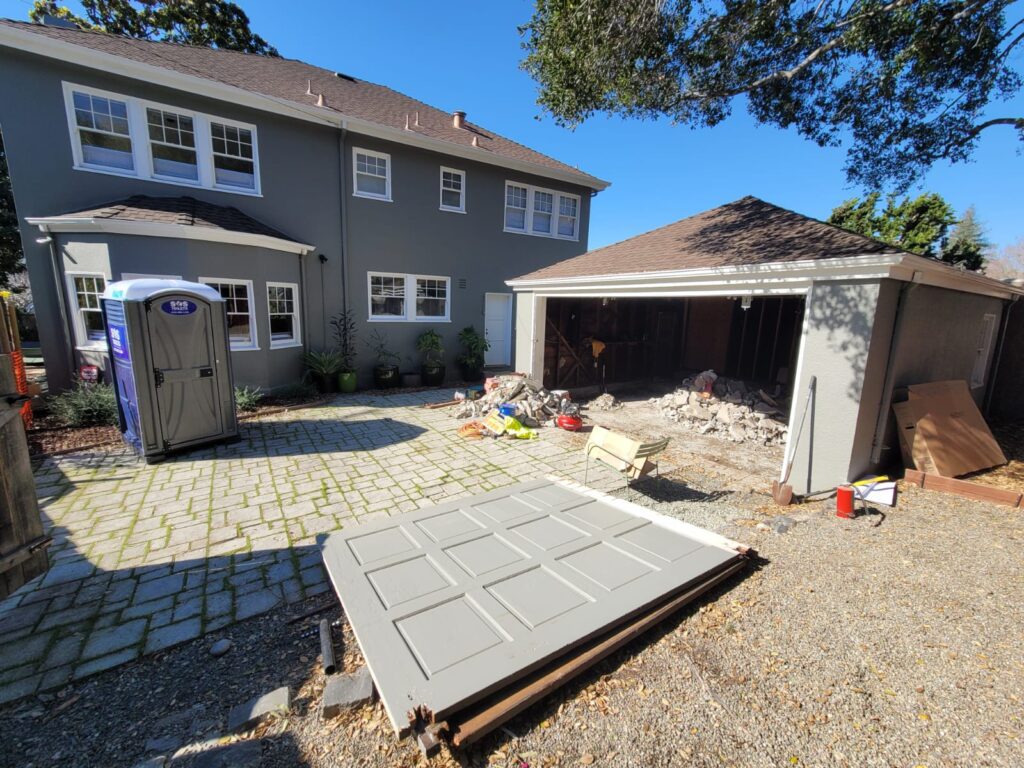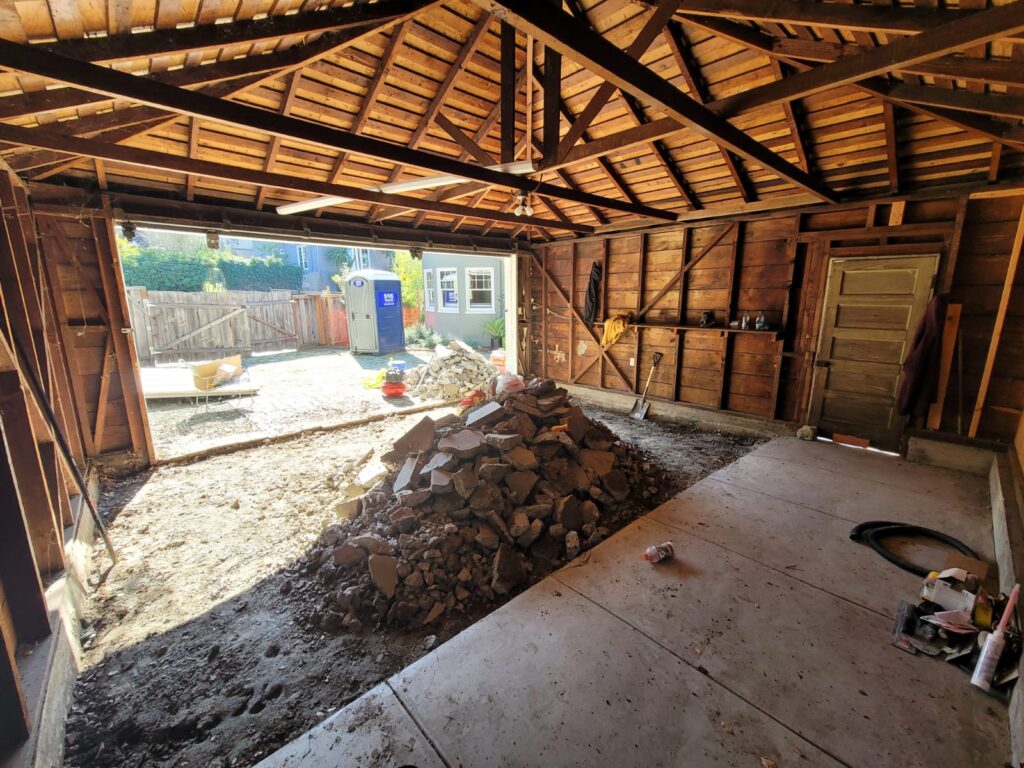Converting a garage into a livable space is a popular renovation trend that allows homeowners to increase their property’s usable square footage without the need for a major extension. Whether you’re transforming your garage into a guest suite, a home office, a rental unit, or a personal gym, there’s one crucial aspect of the project that should not be overlooked: insurance. Before picking up the hammer or hiring a contractor, understanding the insurance implications is key to ensuring that your investment is protected, your liabilities are covered, and you’re not left facing unexpected costs if things go awry.
This comprehensive guide will walk you through the critical elements of garage conversion insurance, covering everything from evaluating existing policies to obtaining the right coverage for both the construction phase and the post-renovation period. We’ll also address some common pitfalls, provide expert advice on working with insurance providers, and explore the legal and financial implications of converting a garage. Let’s dive into the essentials of garage conversion insurance, so you can start your project with confidence.
Understanding the Scope of a Garage Conversion
Before we delve into the insurance considerations, it’s important to understand what a garage conversion entails. The scope of such a project can vary significantly, ranging from simple cosmetic upgrades to full-scale renovations that involve structural changes, electrical and plumbing installations, and compliance with local building codes.
Some common types of garage conversions include:
- Accessory Dwelling Units (ADUs): Creating an independent living space, complete with a kitchen and bathroom.
- Home Offices: Converting the space into a dedicated workspace.
- Recreational Spaces: Building a home gym, entertainment area, or playroom.
- Rental Units: Transforming the garage into a rentable space to generate additional income.
- Guest Suites: Providing a comfortable, separate area for visitors.
Each of these projects comes with its own set of insurance considerations, as the extent of the work may require different levels of coverage.
Key Phases of a Garage Conversion
- Planning and Design: This is the initial phase where you decide on the purpose of the conversion, draw up plans, and obtain necessary permits.
- Construction and Renovation: The actual work begins, which may include structural modifications, adding plumbing and electrical systems, and installing new flooring and walls.
- Finalization and Occupation: Once the project is complete, the space is ready for its intended use, whether for personal use or as a rental unit.
Each phase presents different risks and insurance needs, which makes it crucial to understand how insurance works at each stage.
Insurance Considerations for Garage Conversions
1. Assess Your Current Home Insurance Policy
The first step in ensuring that your garage conversion is properly insured is reviewing your existing homeowner’s insurance policy. Most standard policies cover the main structure of your home and other structures on your property, including attached garages. However, converting a garage into a living space may change its classification under your policy.
Here are some key points to consider:
- Is the garage covered under your current policy? If it’s an attached garage, it may be covered under the dwelling portion of your policy. If it’s detached, it may fall under “other structures” coverage, which typically provides a lower limit.
- Will the conversion impact the overall value of your home? Converting a garage can increase the value of your home, which means you may need to adjust the dwelling coverage to reflect the new replacement cost.
- Are the improvements covered during construction? Most homeowner’s insurance policies do not cover renovations or home improvement projects. You’ll likely need additional coverage during the construction phase.
2. Temporary Construction Insurance or Builders Risk Insurance
While your homeowner’s insurance may cover some aspects of your home, you will need a specific type of insurance for the construction period. This is where builders risk insurance comes into play.
What Is Builders Risk Insurance?
Builders risk insurance, also known as course of construction insurance, is a specialized policy that covers your home and the materials being used during a renovation or construction project. It typically provides coverage for damage caused by events such as:
- Fire
- Vandalism
- Theft of materials
- Weather-related damage (wind, lightning, hail)
- Explosions
- Accidental damage
This type of insurance is essential for a garage conversion because your homeowner’s policy may not cover damage to your home while it’s being renovated. Builders risk insurance provides temporary coverage during the construction phase, ensuring that any unexpected damage or loss of materials is covered.
Important Considerations:
- Policy Duration: Builders risk insurance is temporary and usually lasts for the duration of the project. Make sure the policy is active from the start of the project until completion.
- Limits of Coverage: Ensure that the policy limit is high enough to cover the total value of the project, including labor, materials, and the existing structure if it’s being modified.
- Exclusions: Be aware of what’s not covered, such as earthquakes or floods, which may require additional policies.
3. Contractor’s Insurance and Liability
Hiring a contractor for your garage conversion comes with its own set of insurance requirements. Before signing any contracts, make sure the contractor has the appropriate insurance coverage.
Key Types of Contractor Insurance:
- General Liability Insurance: This covers any bodily injury or property damage that the contractor may cause during the project. If a contractor accidentally damages your home or a worker is injured on your property, their general liability insurance should cover the costs.
- Workers’ Compensation Insurance: If the contractor has employees working on your project, they should carry workers’ compensation insurance. This covers medical expenses and lost wages if a worker is injured on the job. Without this coverage, you could be held liable for injuries that occur on your property.
- Professional Liability Insurance: Also known as errors and omissions insurance, this covers mistakes or negligence in the design or execution of the project. For example, if the contractor fails to meet building codes, this insurance can cover the costs of correcting the mistake.
Verifying Coverage
Always ask your contractor for proof of insurance and verify that the policy is current. You can also ask to be added as an “additional insured” on their policy, which ensures that you’re covered if something goes wrong.
4. Updating Your Homeowner’s Insurance Post-Conversion
Once the garage conversion is complete, it’s time to update your homeowner’s insurance policy to reflect the changes. Failing to do so could leave you underinsured in the event of a claim.
Key Areas to Update:
- Increased Dwelling Value: A garage conversion typically increases the value of your home. You’ll need to adjust your coverage to reflect the higher replacement cost of the property. Your insurer may require an updated appraisal to determine the new value.
- Personal Property Coverage: If your converted garage contains expensive equipment, such as a home gym or high-end appliances in a rental unit, you may need to increase your personal property coverage.
- Liability Coverage: If you’re converting your garage into a rental unit or an ADU, you’ll need to update your liability coverage. Renting out a portion of your home increases your risk of liability, so it’s important to have sufficient coverage in case a tenant is injured on your property.
Specialized Coverage for Rental Units
If you plan to rent out the converted garage, you may need to add landlord insurance or a rental property endorsement to your homeowner’s policy. This provides additional protection for rental income, tenant-caused damage, and liability related to the rental unit.
5. Flood and Earthquake Insurance
Standard homeowner’s insurance policies typically exclude damage caused by floods and earthquakes. If you live in an area prone to these natural disasters, you’ll need to purchase separate policies to ensure that your garage conversion is fully covered.
- Flood Insurance: Required in FEMA-designated flood zones, this policy covers damage from flooding, which is not included in standard policies.
- Earthquake Insurance: This policy covers damage caused by earthquakes and may be necessary if you live in a seismically active area, such as California.
6. Permits and Building Codes: Insurance Implications
Converting a garage into a living space requires adherence to local building codes and obtaining the necessary permits. If you proceed without the proper permits or fail to meet code requirements, you may face significant issues with your insurance coverage.
Why Permits Matter:
- Claims Denial: If your insurance company discovers that your garage conversion was completed without the proper permits or in violation of building codes, they may deny any claims related to the project. For example, if a fire starts in the converted garage due to faulty electrical work that wasn’t inspected, your claim could be denied.
- Insurability: Some insurers may refuse to insure homes with unpermitted renovations, leaving you at risk of being underinsured or uninsurable altogether.
- Resale Value: Unpermitted work can also impact the resale value of your home, as buyers may be hesitant to purchase a property with unverified renovations.
How to Ensure Compliance:
- Obtain All Necessary Permits: Work with your contractor to ensure that all required permits are obtained before starting the conversion.
- Follow Local Building Codes: Make sure that the project complies with local building codes, which will vary depending on the scope of the conversion (e.g., adding plumbing, electrical work, etc.).
- Schedule Inspections: Most jurisdictions require inspections at various stages of the project to ensure compliance with building codes. Failing to schedule these inspections can lead to delays and potential insurance issues.
7. Fire and Safety Considerations
Garage conversions often require modifications to the existing structure, such as adding windows, doors, or walls. These changes can affect the fire safety of the home, which in turn may impact your insurance coverage.
Key Fire Safety Considerations:
- Smoke Alarms and Fire Extinguishers: Adding smoke alarms and fire extinguishers to the converted space may be required by local building codes. Your insurance company may also offer discounts for taking these safety precautions.
- Fire-Resistant Materials: If the garage shares a wall with the main house, consider using fire-resistant materials during the conversion. Some insurers may require this to reduce the risk of fire spreading between the two spaces.
- Electrical Systems: Faulty electrical work is a common cause of house fires. Ensure that any electrical modifications meet code requirements and are inspected by a licensed electrician.
Common Pitfalls and How to Avoid Them
Even with the best of intentions, homeowners can run into insurance-related issues during a garage conversion. Here are some common pitfalls and how to avoid them:
1. Failing to Notify Your Insurer
One of the most common mistakes homeowners make is failing to notify their insurance company of the garage conversion. If you don’t inform your insurer, they may not provide coverage for the new space, leaving you vulnerable in the event of a claim.
Solution: Notify your insurer before starting the project, and provide them with updates throughout the process. This ensures that your coverage is adjusted as needed.
2. Underinsuring the Conversion
Many homeowners underestimate the cost of a garage conversion and fail to update their policy limits accordingly. This can result in being underinsured if the home is damaged or destroyed.
Solution: Work with your insurance agent to determine the appropriate level of coverage based on the estimated cost of the conversion. You may need to increase both your dwelling and personal property coverage.
3. Not Checking Contractor’s Insurance
Hiring an uninsured or underinsured contractor can leave you financially liable for accidents or damage that occurs during the project.
Solution: Always ask for proof of insurance and verify that the contractor’s policy is active before work begins. Consider adding yourself as an additional insured on their policy for extra protection.
4. Ignoring Rental-Specific Insurance Needs
If you plan to rent out the converted garage, failing to obtain landlord insurance or a rental property endorsement can leave you exposed to significant risks.
Solution: Talk to your insurance provider about adding the necessary coverage for a rental unit, including liability and loss of rental income.
Conclusion: Protecting Your Investment with the Right Insurance
A garage conversion is a significant investment that can add value to your home and enhance your lifestyle. However, without the right insurance coverage, you could be left exposed to financial risks that outweigh the benefits of the project. By understanding your insurance needs at each stage of the conversion—planning, construction, and post-renovation—you can protect yourself from potential pitfalls and ensure that your new space is fully covered.
From assessing your current homeowner’s policy to securing builders risk insurance, verifying your contractor’s coverage, and updating your policy after the conversion, taking the time to address insurance concerns will give you peace of mind as you embark on this exciting home improvement journey.
By following the tips outlined in this guide, you’ll be well-equipped to navigate the complexities of garage conversion insurance and protect your investment for years to come.
Transform Your Garage with Red White & Blue Construction
Is your garage just sitting there unused? Let’s change that! At Red White & Blue Construction, we turn garages into beautiful, practical spaces. Whether you’re in Lafayette, CA, or anywhere in the Bay Area, we’ll help you create a space that adds value to your home and fits your lifestyle.
Looking for a guest room, a home office, or an ADU (Accessory Dwelling Unit) for extra income? We’ve got you covered! Our team will handle everything—from design and construction to making sure it meets building codes—so you can enjoy your new space without worry.
We’re known throughout the Bay Area for our quality work, fair pricing, and friendly, hands-on service. With us, the process is easy and stress-free. From flooring to electrical and plumbing, we take care of every detail. Whether you want something bold or simple, we’ll bring your vision to life.
Don’t let your garage go to waste. Turn it into a space you’ll love with Red White & Blue Construction. Contact us today and let’s make your dream garage conversion a reality!
Disclaimer
The materials available on this website are for informational and entertainment purposes only and not to provide advice. You should obtain advice concerning any particular issue or problem from a professional. You should not act or refrain from acting based on any content included in this site without seeking legal or other professional advice. The information presented on this website may not reflect the most current building developments. No action should be taken in reliance on the information on this website. We disclaim all liability concerning actions taken or not taken based on any or all of the contents of this site to the fullest extent permitted by law.





